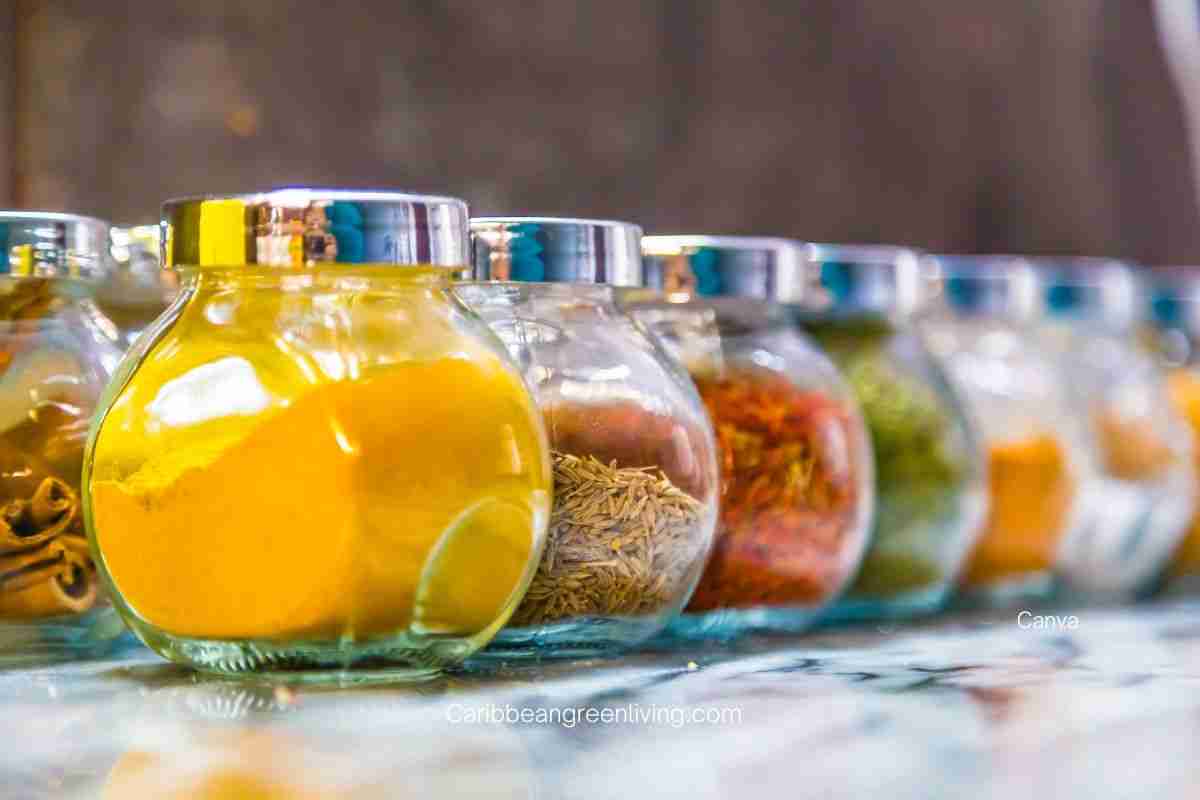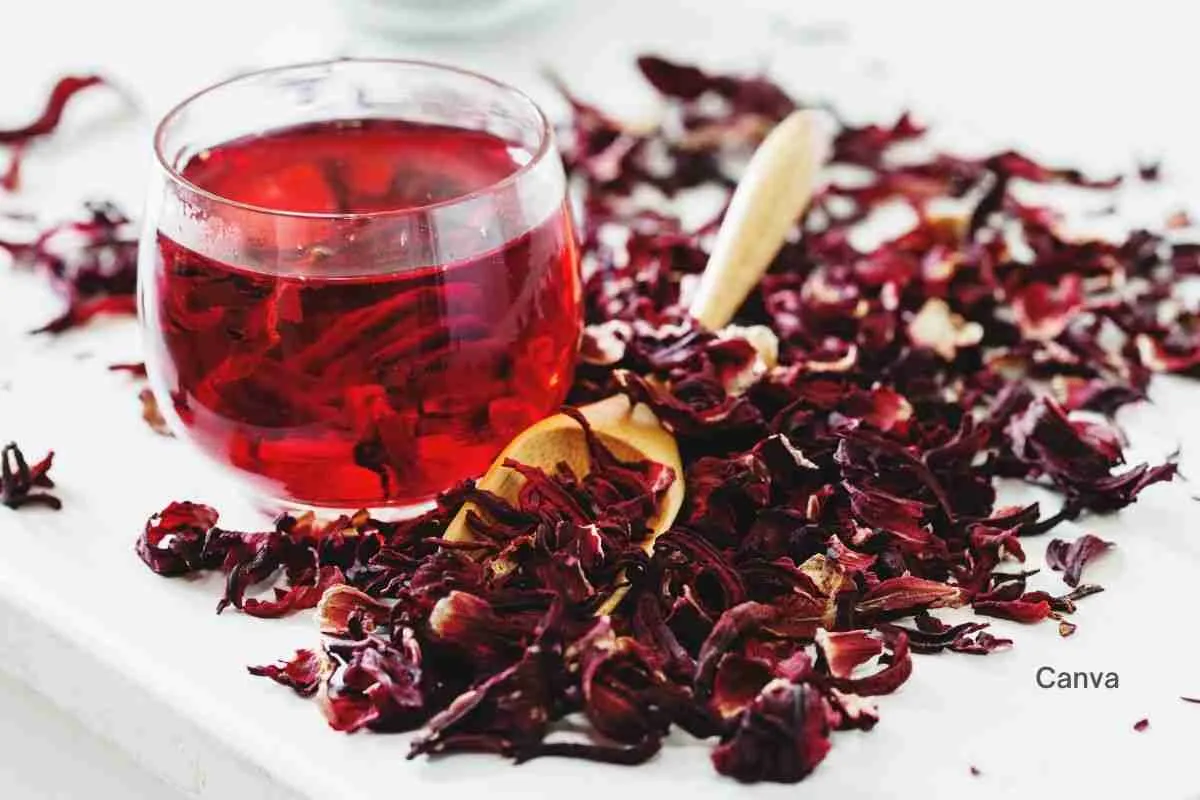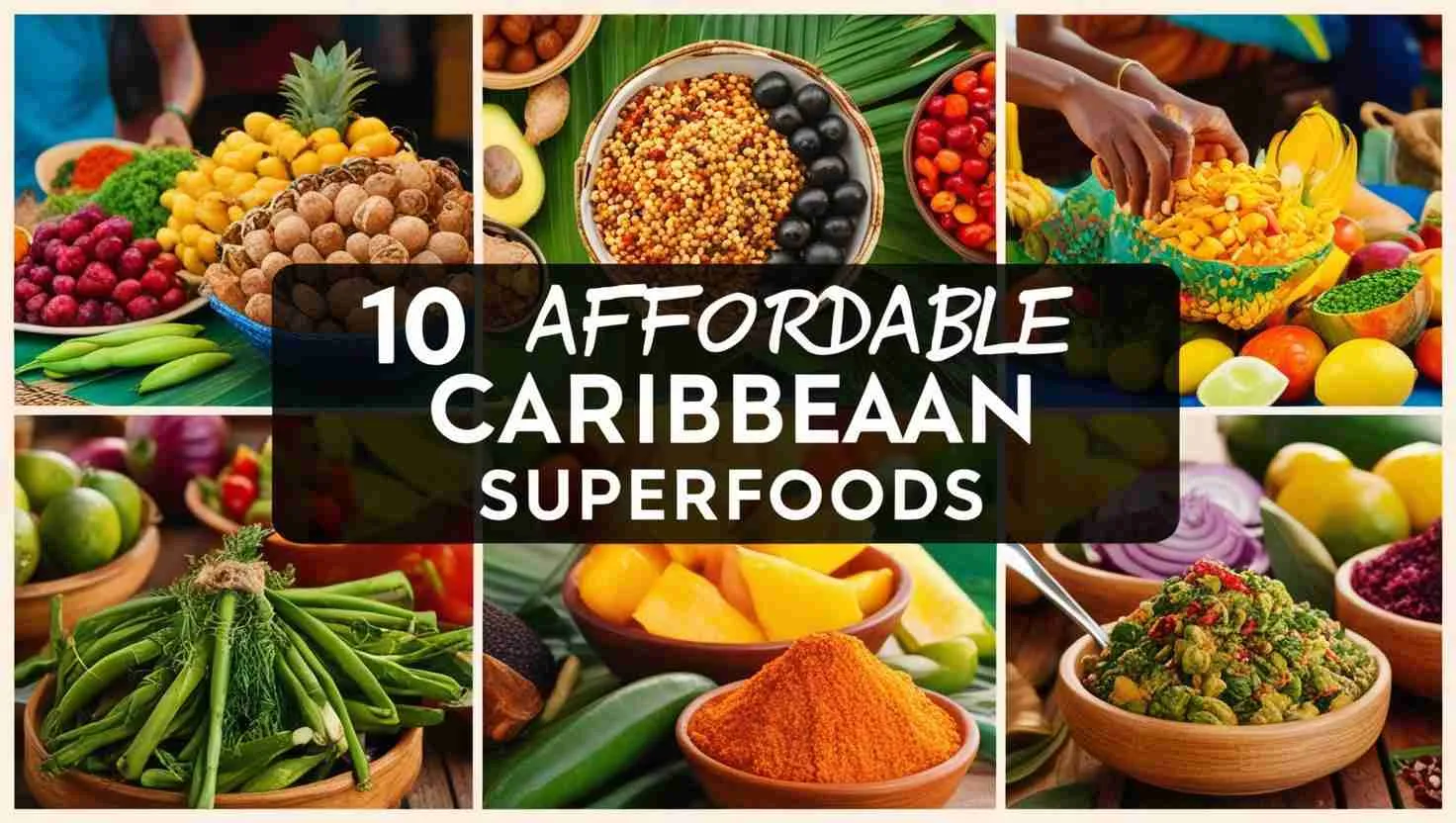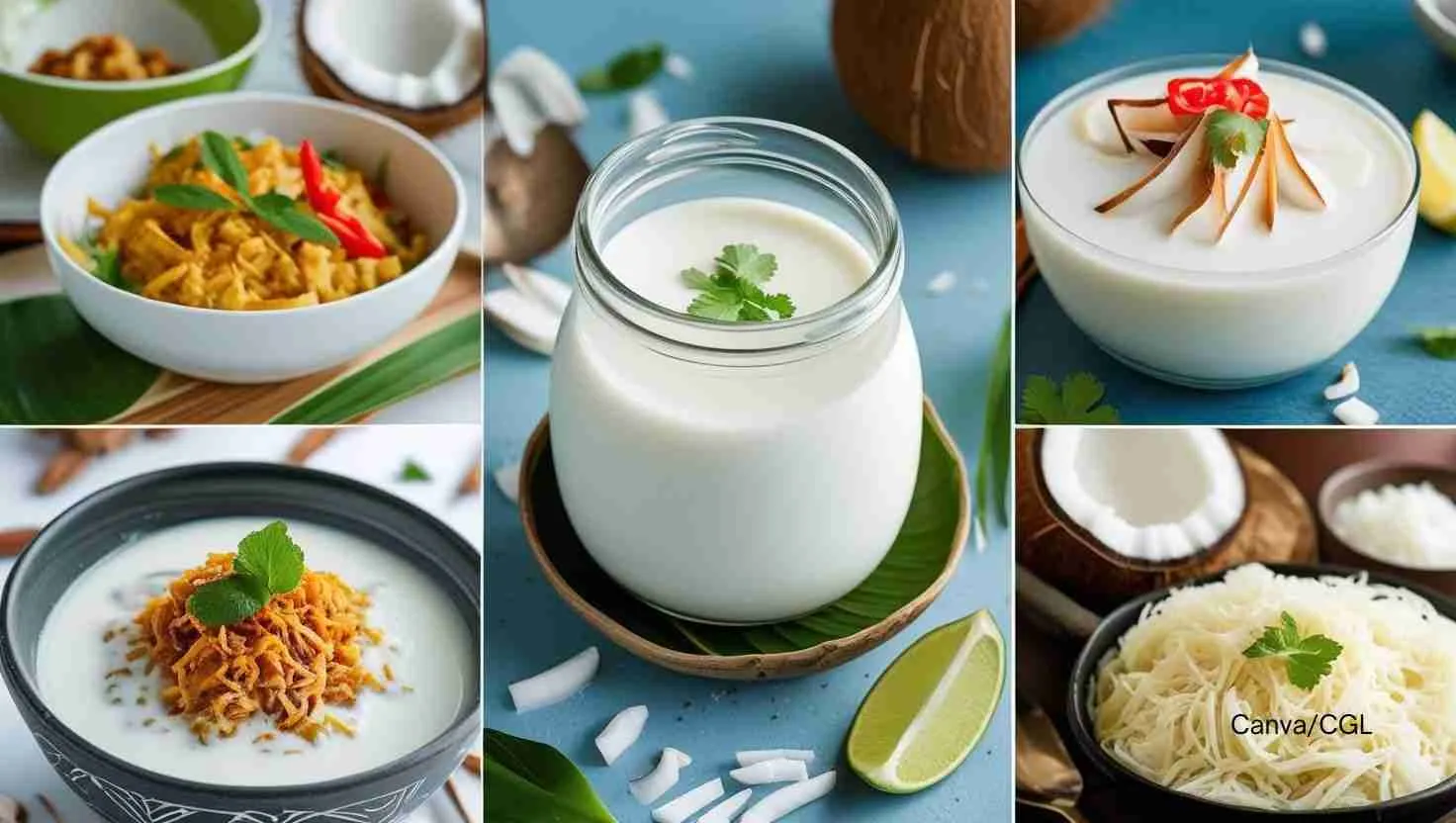Spice Up your Life with the Health Benefits of Caribbean Spices
Spice up your life and boost your health with a dash of Caribbean flavors! Caribbean spices not only add an exotic and vibrant touch to your dishes but also pack a punch when it comes to health benefits. From enhancing digestion to boosting immunity, these flavorful seasonings have been used in the Caribbean cuisine for centuries.
Kickstart your culinary journey with the fiery heat of scotch bonnet peppers, known for their high vitamin C content and inflammation-fighting properties. Indulge in the warm aroma of allspice, a staple in Caribbean cooking, which not only aids digestion but also acts as a powerful antioxidant. Add a twist to your meals with nutmeg, a popular spice in Caribbean cuisine, known to improve brain health and relieve pain. But it doesn’t end there!
Take advantage of the antibacterial properties of cinnamon, the anti-inflammatory properties of turmeric, and the digestion-boosting abilities of ginger. Each spice brings its unique flavor and health-promoting properties to the table. So, don’t be afraid to experiment with Caribbean spices in your dishes. Not only will they add an explosion of flavor, but they will also enhance your well-being. Get ready to embark on a culinary adventure and discover the endless health benefits of Caribbean spices.
Health benefits of Caribbean spices
Caribbean cuisine is renowned for its vibrant flavors, thanks to the abundance of spices that infuse dishes with warmth, complexity, and health benefits. Here are some of the most popular Caribbean spices and their associated health advantages:
- Ginger: Known for its anti-inflammatory properties, ginger can help soothe digestive issues, reduce nausea, and boost immunity.
- Allspice: This spice is packed with antioxidants that can protect cells from damage. It may also aid in digestion and relieve symptoms of cold and flu.
- Cinnamon: Cinnamon has been shown to help regulate blood sugar levels, making it beneficial for individuals with diabetes. It may also boost metabolism and support heart health.
- Cayenne pepper: The capsaicin in cayenne pepper can help reduce pain, improve circulation, and boost metabolism. It may also aid in weight management and digestion.
- Turmeric: This golden spice is known for its anti-inflammatory properties, which can help reduce inflammation throughout the body. Turmeric may also support brain health and boost immunity.
- Coriander: Coriander is a good source of antioxidants and may help improve digestion and reduce inflammation. It may also have antibacterial properties.
- Thyme: Thyme is rich in antioxidants and may help boost immunity and reduce inflammation. It may also have antibacterial and antifungal properties.
By incorporating these flavorful Caribbean spices into your diet, you can enjoy the delicious taste of the islands while reaping the numerous health benefits they offer.
Nutritional value of Caribbean spices
While Caribbean spices are primarily known for their flavor profiles, they also offer a range of essential nutrients. Here’s a brief overview of the nutritional value of some common Caribbean spices:
- Ginger: Rich in antioxidants, ginger also contains gingerol, a compound with anti-inflammatory properties.
- Allspice: Packed with antioxidants, allspice also contains essential oils and fiber.
- Cinnamon: A good source of antioxidants, cinnamon also contains manganese and fiber.
- Cayenne pepper: Primarily known for its capsaicin content, cayenne pepper also contains vitamins A, C, and B6, as well as potassium and iron.
- Turmeric: A rich source of curcumin, a potent antioxidant with anti-inflammatory properties, turmeric also contains manganese and fiber.
- Coriander: A good source of antioxidants, coriander also contains iron, potassium, and fiber.
- Thyme: Packed with antioxidants, thyme also contains iron, manganese, and fiber.
It’s important to note that the nutritional content of spices can vary depending on factors such as growing conditions, harvesting methods, and processing. However, incorporating these spices into your diet can provide a boost of essential nutrients while enhancing the flavor of your meals.

Popular Caribbean spices and their uses
Caribbean cuisine is renowned for its bold and flavorful dishes, which are often infused with a variety of spices. Here are some of the most popular Caribbean spices and their common uses:
- Ginger: This versatile spice is used in a wide range of Caribbean dishes, from savory meats to sweet desserts. It adds a warm, spicy flavor and is often found in jerk seasonings, curries, and ginger beer.
- Allspice: A blend of cinnamon, cloves, and nutmeg, allspice is a staple in Caribbean cooking. It adds a warm, aromatic flavor and is commonly used in jerk seasonings, soups, stews, and baked goods.
- Cinnamon: Known for its sweet, warm flavor, cinnamon is often used in desserts and baked goods. It can also be added to savory dishes like curries and stews.
- Cayenne pepper: This fiery spice adds a kick of heat to Caribbean dishes. It is often used in jerk seasonings, hot sauces, and chili peppers.
- Turmeric: This golden spice adds a warm, earthy flavor to Caribbean dishes. It is often used in curries, rice dishes, and marinades.
- Coriander: The seeds and leaves of coriander are both used in Caribbean cooking. The seeds add a warm, nutty flavor, while the leaves add a fresh, citrusy taste. Coriander is often used in jerk seasonings, curries, and marinades.
- Thyme: This fragrant herb is used in a variety of Caribbean dishes, from savory meats to sweet desserts. It adds a warm, herbaceous flavor and is often found in jerk seasonings, soups, stews, and marinades.
These are just a few of the many popular Caribbean spices that are used to create the vibrant and flavorful dishes of the region. By experimenting with different combinations of spices, you can create your own unique Caribbean-inspired dishes.
Incorporating Caribbean spices into your diet
Caribbean spices offer a delicious and healthy way to add flavor to your meals. Here are some tips for incorporating them into your diet:
- Start with small amounts: If you’re new to Caribbean spices, start by using small amounts to get a feel for their flavors.
- Experiment with different combinations: Caribbean spices can be used in a variety of combinations to create unique flavor profiles.
- Add them to your favorite dishes: Try adding Caribbean spices to your favorite dishes to give them a new twist.
- Use them in marinades and rubs: Caribbean spices can be used to create flavorful marinades and rubs for meats and vegetables.
- Make your own spice blends: Create your own custom spice blends using Caribbean spices to suit your taste preferences.
Here are some ideas for incorporating Caribbean spices into your meals:
- Jerk chicken: Season chicken with a jerk spice blend and grill or bake.
- Curry goat: Cook goat with a curry powder blend and serve over rice.
- Rice and peas: Cook rice with coconut milk, allspice, and thyme.
- Fish tacos: Season fish with a spice blend and serve in tacos with tropical salsa.
- Fruit salad: Toss fruit with a sprinkle of cinnamon and nutmeg.
- Chocolate cake: Add a pinch of cayenne pepper to the chocolate cake batter for a spicy twist.
- Haitian griot: Season pork with a customer blend for griot and fry or bake.
- Rice with djon djon sauce: Cook rice with a djon djon sauce made with black mushrooms and spices.
By incorporating Caribbean spices into your diet, you can enjoy the delicious flavors of the islands while reaping the numerous health benefits they offer.
Where to buy Caribbean spices
Caribbean spices can be found at a variety of retailers, both online and in-store. Here are some places to consider:
- Specialty grocery stores: Many specialty grocery stores, particularly those with a focus on international cuisine, carry a selection of Caribbean spices.
- Online retailers: Online retailers like Amazon, Etsy, and specialty spice shops offer a wide variety of Caribbean spices, often at competitive prices.
- Caribbean markets: If you’re lucky enough to have a Caribbean market in your area, you’ll likely find a great selection of authentic Caribbean spices.
- Farmers’ markets: Some farmers’ markets may have vendors selling fresh herbs and spices, including Caribbean varieties.
When buying Caribbean spices, look for high-quality products that are fresh and have a strong aroma. Avoid spices that are stale or have lost their color.

Growing your own Caribbean spice garden
If you’re a fan of Caribbean cuisine, growing your own spice garden can be a rewarding experience. While some Caribbean spices may be difficult to grow in colder climates, many can thrive with proper care. Here are some popular Caribbean spices that you can try growing:
- Ginger: Ginger is a tropical plant that prefers warm, humid conditions. It can be grown indoors or outdoors, but it requires plenty of sunlight and moisture.
- Allspice: Allspice is a small tree that can be grown in warm climates. It produces berries that can be dried and ground into spice.
- Cayenne pepper: Cayenne pepper is a heat-loving plant that can be grown indoors or outdoors. It produces long, thin peppers that can be dried and ground into spice.
- Turmeric: Turmeric is a perennial plant that can be grown in warm climates. It produces rhizomes that can be dried and ground into spice.
- Coriander: Coriander is an annual herb that can be grown in most climates. It produces leaves and seeds that can be used as a spice.
- Thyme: Thyme is a perennial herb that can be grown in most climates. It produces small, fragrant leaves that can be used as a spice.
Here are some tips for growing Caribbean spices:
- Choose the right location: Most Caribbean spices prefer warm, sunny locations with well-drained soil.
- Plant at the right time: The best time to plant Caribbean spices depends on your climate. In warmer climates, you can plant them in the spring or summer. In colder climates, you may need to start them indoors and transplant them outdoors after the last frost.
- Water regularly: Caribbean spices need plenty of water, especially during hot, dry weather.
- Fertilize regularly: Fertilize your Caribbean spice plants with a balanced fertilizer every few weeks.
- Harvest at the right time: The best time to harvest Caribbean spices depends on the type of spice you’re growing. Some spices can be harvested when they are young, while others need to be mature before they are harvested.
By following these tips, you can grow your own Caribbean spice garden and enjoy the fresh flavors of the islands in your own backyard.
Safety precautions when using Caribbean spices
While Caribbean spices are generally safe to consume, it’s important to take some precautions to avoid any adverse reactions. Here are a few tips:
- Check for allergies: If you have known allergies to certain foods, be aware that some Caribbean spices may contain allergens. For example, allspice is related to nutmeg, and people with nutmeg allergies may also be allergic to allspice.
- Use in moderation: While most Caribbean spices are safe when consumed in moderation, excessive consumption of some spices can lead to side effects. For example, excessive consumption of cayenne pepper can cause stomach upset or heartburn.
- Avoid if pregnant or breastfeeding: Some Caribbean spices may not be safe for pregnant or breastfeeding women. Consult with your healthcare provider before consuming any new spices if you are pregnant or breastfeeding.
- Store properly: Store Caribbean spices in a cool, dry place away from direct sunlight. This will help to preserve their flavor and potency.
- Check expiration dates: Be sure to check the expiration dates on your Caribbean spices. Spices that are past their expiration date may have lost their potency or become contaminated.
By following these safety precautions, you can enjoy the delicious flavors of Caribbean spices without any concerns.
Conclusion: Embracing the flavors and health benefits of Caribbean spices
Caribbean spices offer a unique combination of flavor and health benefits that can add a delicious and nutritious element to your diet. By incorporating these vibrant spices into your meals, you can enjoy the delicious tastes of the islands while reaping the numerous health benefits they offer.
Whether you’re a seasoned cook or just starting out, there are countless ways to incorporate Caribbean spices into your culinary adventures. From jerk chicken to rice and peas, the possibilities are endless. So why not embark on a flavorful journey and discover the wonders of Caribbean spices?






